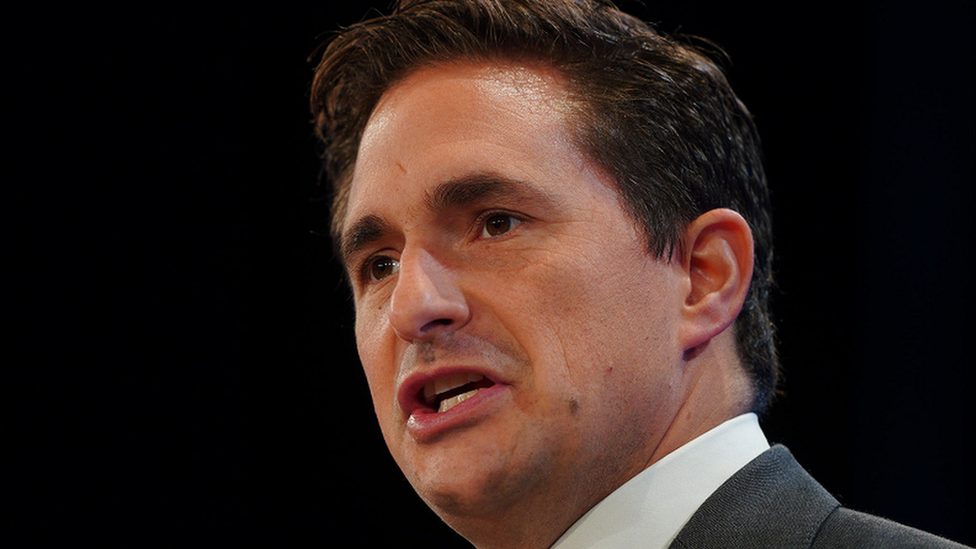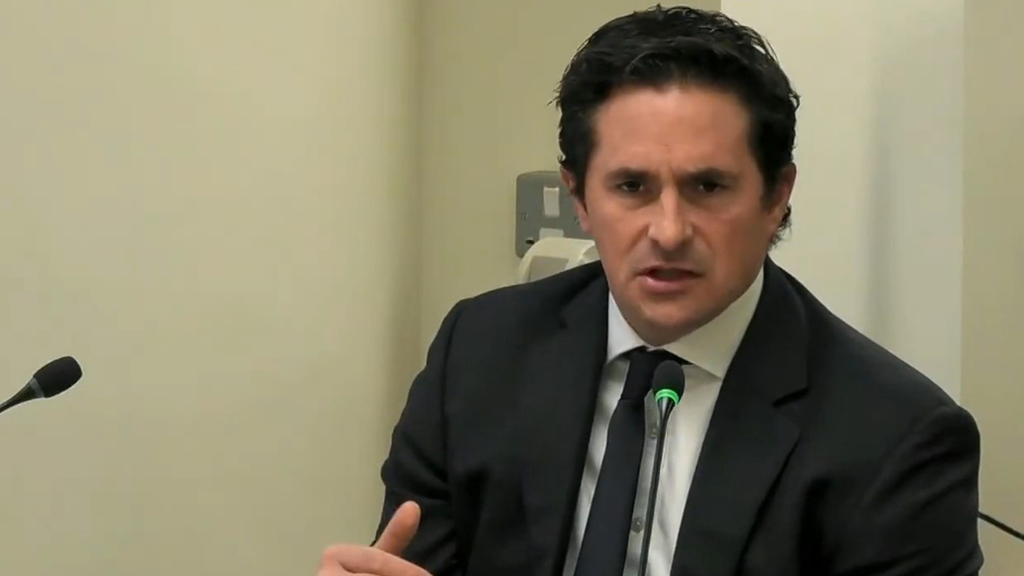Afghanistan: Veterans minister told to hand over names to inquiry
- Published

Johnny Mercer has previously refused to hand over the names of whistleblowers
The veterans minister has been ordered to hand over the names of those who told him about alleged war crimes and a cover-up by British special forces in Afghanistan.
Johnny Mercer has until 5 April to provide a witness statement with the names to an independent inquiry.
Failure to comply could result in a jail sentence or fine, the MP was told.
He has previously indicated he will not reveal who told him that the allegations were credible.
The Plymouth Moor View MP declined to comment.
Mr Mercer was served with a Section 21 notice under the Inquiries Act 2005, external earlier this month and its contents have now been made public.
The order compels him to hand over the names, which the Independent Inquiry relating to Afghanistan has insisted will be "treated in confidence".
If he believes the order is unreasonable, or he is unable to comply with it, the order says he has until 3 April to make written submissions explaining why.
The inquiry is investigating whether British special forces killed civilians and unarmed people on night raids in Afghanistan between 2010 and 2013.
In previous heated exchanges with counsel for the inquiry, Mr Mercer repeatedly refused to reveal the identities of whistleblowers who he said had warned him there might be truth to the allegations of extrajudicial killings by special forces.
Providing his reasons for not disclosing the names, Mr Mercer told the inquiry last month: "The one thing you can hold on to is your integrity and I will be doing that with these individuals."
The chair of the inquiry, Sir Charles Haddon-Cave, previously told the minister: "You need to decide which side you are really on, Mr Mercer."
Sir Charles asked him whether he was on the side of serving the "public interest and the national interest in getting to the truth of these allegations quickly" or being part of what he described as a "wall of silence", which was "obstructing the inquiry and access to the truth".
He added that he believed Mr Mercer had a "misguided understanding of the term integrity and an inappropriate sense of loyalty" in not naming individuals.
Mr Mercer served with a Special Boat Service (SBS) task force in Afghanistan from 2008 to 2009.
He previously told the inquiry that he had received a direct account from a serving member of the SBS who said he had been asked to carry a "drop weapon" - which he explained were non-Nato weapons carried by UK Special Forces units that could be planted on the body of someone killed during a mission, to falsely suggest the unarmed victim had posed a threat to British troops.
Mr Mercer also refused to reveal to the inquiry the name of the SBS member asked to carry a drop weapon.
He previously told the inquiry that he had detected an "odour" around the Special Air Service (SAS) stemming from stories of the regiment illegally killing people who posed no threat to British troops.
Related topics
- Published23 March 2024
